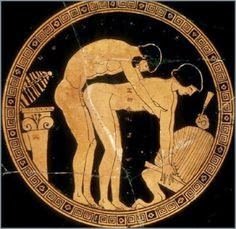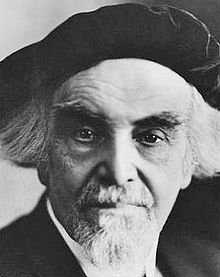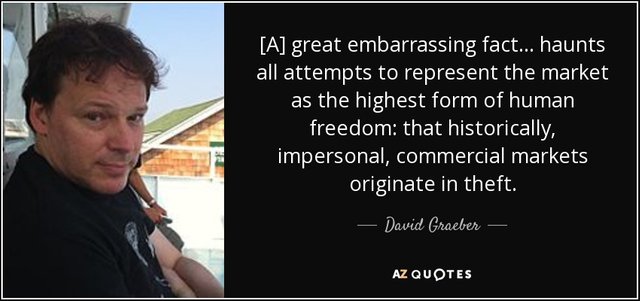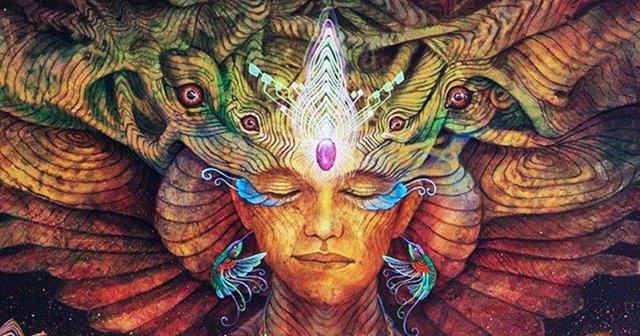The Regional Burn: Primitivism within Modernity
[Disclaimer: I do not believe in Christianity. When I use the terminology and metaphors of Christian theology, I am merely using these terms in a philosophical sense. I do this because, although I believe neither in the Bible nor in the existence of a benevolent Creator with a causal relation to our universe, I do think that theologians have made some profound observations about human nature. (Cf. Ludwig Feuerbach, The Essence of Christianity)]
The first time that I went to a burn was a life-changing experience. The main thing that I got from the experience was a different perspective on nudity and sexuality. I realized that the fetishization of women's breast and asses is a result of covering them up. In "primitive" societies, where women go around mostly nude, men are not obsessed with breasts the way "civilized" man is. The civilized man breaks his neck to get a peak at fully-covered breasts on the woman passing by in the grocery store, whereas the indigenous men of "primitive" cultures don't generally share our unnatural obsession with breasts.
I just returned home from my second burn, and this too was a learning experience. I've been reflecting on the fact that a burn is like a re-creation of primitive society in some respects. It is certainly not a sustainable re-creation, but rather a recreational re-creation. There is no agricultural element, no working of the land, no production of necessities. The economic aspect of the primitive is lacking. On the other hand, the 10 Principles of Burning Man have the effect of re-creating other important aspects of primitive societies. A burn is a little pocket of the primitive within the context of modernity, a spark of the archaic revival, to use the terminology of Terence McKenna. There are several different ways in which this is the case. I will go through some (though not all) of the Principles and elaborate on how they relate to this revival of the primitive.

One of the principles is radical inclusion, and this strikes me as among the most liberatory aspects of burner culture. In our modern world, we are pressured to conform to an extent that it often deprives us of our individuality and forces us to live fake and artificial lives―we cannot simply be who we are, or who we want to me, but must drown our own individuality in the ocean of the collective. In many primitive societies, the outcasts of today were valued in a very meaningful way. Schizophrenic individuals were often revered shamans, hermaphrodites and androgynes were valued as unique individuals who embodied the perfect union of male and female (i.e. complete in themselves, whereas "ordinary" males and females required a complementary partner in order to be complete), and "primitive" African societies had a long history of accepting transgender and homosexual individuals. It is well-known that the ancient Greeks, before becoming more "civilized," practiced pederasty, which is often mistaken for pedophilia. Pederasty was associated with pedagogy and academia, and the "boys" involved were old enough that we would regard them as adults by modern standards. Additionally, these homoerotic acts involved intercrural sex (placing the penis between the receiver's thighs, rather than anal penetration). From Greece and Rome to China and Japan, homosexual intercourse was basically normal and not generally regarded as strange or immoral. Our modern culture likes things to be oversimplified. It likes binary options, either this or that, black or white, male or female, capitalist or socialist, etc. The very notion that there could be shades of grey or a whole array of colors like blue, red, green, and yellow is completely lost to our so-called "society." One of the beauties of the burn is that it rejects the false dichotomies and false binaries of modernity and gives a place in this temporary community to the lunatics, the homosexuals, the non-binary individuals, etc. In a very real way, radical inclusion harks back to something that we lost with the emergence of homogenized civilization and the oppression of humankind in modernity.

Radical inclusion has the principles of communal effort and participation as its corollaries, which gives a burn a very personalistic characteristic. A person is not the same thing as an individual, and personalism is not synonymous with individualism. The very concept of personhood emerged from Christian theology and the discussion of the nature of the Trinity. The three personae (or hypostaseis) of God were united in the single shared essence. In Trinitarian theology, God is not an individual but a person. The term person is a relational term. God is essentially analogous to a society, and the plurality of individuals interacting in their various relations is what makes personality possible.

Our modern "society" kills persons by stripping them of meaningful relationships and turns them into mere individuals, cogs in the machine of the economic order, rather than persons whose primary importance is in their relationships with friends and family. By encouraging radical inclusion, communal effort, and participation, a burn re-personalizes the individual by fostering personal relationships rather than the mere mechanical disconnected interactions that the commodification of humans has accustomed us to.

One thing that struck me about this burn was the ritual when they lit the temple on fire. They passed out candles and lit one of them, and everyone went around to find someone to light their candle, until all of them were lit, and then everyone carried their candle to the temple and placed them there. This was essentially an ecclesiastical ritual, which is to say a social or communal ritual that involves individual participation, and it reminded me of the liturgy in the Eastern Orthodox Church, especially of the kiss of peace. What attracts me to the burn is the same thing that once attracted me to Eastern Orthodoxy: it is neither individualistic nor collectivistic, but both―it's a deeply personal experience. The particular ritual at this burn embodied the individualist-collectivist fusion of personalism perfectly, and encouraged everyone to aspire to the concrete universality of personality (cf. Nikolai Berdyaev).

To embrace the concrete universality of personality (i.e. the perfect harmony of individuality within the context of community) is to be fully human. The commodification of man and nature under capitalism has caused us to lose sight of our true nature. The bulk of individuals within modernity are not persons. They are merely individuals, isolated and alienated from one another, although they are clustered together closely. They have lost the relational ontology that is essential to what it is to be human. What matters most is relationships and agapic love. ο θεος αγαπη εστιν (ho theos agape estin): "God is love."(1 John 4:8) God is not erotic love (eros) or brotherly love (philia), but agape. Agapic love is a sort of unconditional, personalistic love, which arises from the realization of a fundamentally shared ontology between oneself and the other. It is the love of the persons within the Trinity that make them God. This relational love is what makes them persons and gives them the relational ontology through which they have substantial being. In objective terms, God's essence is nothing. It is non-existent. God's essence exists, insofar as it does exist, only in the relations between the persons. In Orthodox theology, the essence of God is not something that can be abstracted from the persons, as it is in Western theology. The essence of God is simply the commonality or shared nature of what the persons have in common. You only attain to a level of having agapic love for another person when you realize that you are essentially identical to them and make your relations to others the defining characteristic of your own being without losing your individuality in the process.
The attainment of agapic love and the concrete universality of personality is virtually impossible within the framework of modern "society." I keep thinking of the metaphor of our current "society" as the society of the spectacle, to use the terminology of Guy Debord. A defining characteristic of capitalist modernity is the commodification of everything. Personality becomes a rare occurrence. Many people are lost; they simply do not know who they are. Hence, the modern obsession with "finding one's self." People are no longer persons, but individual commodities. In the wage-labor market, people are treated as commodities, to be purchased at a price and thrown away when they become too expensive. When an individual is hired, the concern of the employer is to give them the lowest wage that they will accept, rather than a fair wage or a living wage. When an individual is fired, there is no thought given by the employer to the question of how they will survive. Capitalism is all about the commodification of everything, including people. Even leisure and entertainment become commodities, objects to be sold. We pay for television, internet, vacation, etc. This commodification of everything deprives the individual of their complete personality and strips us of social relations. Historically, entertainment and leisure came in the form of interpersonal relationships and play, playing games, having sex, etc. And all of this was done on a more or less personal basis, but capitalist modernity has commodified play and managed to mediate the experience into an impersonal exchange. We play online games without directly interacting with one another on a personal level. We watch television shows about fictional characters, thereby entertaining ourselves in an individualistic and alienating fashion. Exchange has become commodified as well. The archaic communism of primitive societies with their personalistic gift economies has been replaced by checkout lines where cashiers and customers (rather than persons) can mechanically exchange commodities with as little genuine human interaction as possible. And the mechanization and commodification simply becomes worse as cashiers are replaced with self-checkout lines, eliminating once and for all that little remnant of human interaction.

The burn, like a genuine ecclesiastical community, fights against the tragedies of modernity. Two of the other Principles of Burning Man are decommodification and gifting. This gives burners a much-needed break from the insanity of capitalist modernity. At a burn, there is no buying or selling, no barter, no exchange of money. The only sort of exchange is to be the gift, given freely with no expectation of reciprocation. This, in some ways, harks back to the gift economies of primitive societies. In other ways, it goes beyond them. It is quite unlikely, as far as I can tell from the anthropological literature, that gifting in primitive societies is really altruistic. In primitive societies, there is an unstated but understood expectation of reciprocation, although the reciprocation is never to be equal. One must give more or less than was given to them, in order to create a sort of indebtedness within the context of the gift economy, thereby creating an excuse to continue personal relations. At a burn, the gift is truly free. I would assume that this is the case only because of the short duration of a burn. If a burn were to be made sustainable and lasting, the community would shift more in the direction of a traditional gift economy, where there is a definite expectation of reciprocity. One event that stands out from this recent burn occurred as we were packing up to leave. One of my friends was admiring a rug that another burner had brought along with him. As soon as he mentioned that he liked the rug, the other burner offered it to him as a gift. This reminded me of something that I had heard David Graeber say about gift economies. In primitive societies, if one admires something that belongs to their neighbor and expresses their admiration for some object (whether livestock, garment, tool), the neighbor is basically morally obligated to offer it to them as a gift. In this way, the Principles of Burning Man revive the moral ethos of primitive societies, creating a pocket of primitivism within modernity.
"The need of a constantly expanding market for its products chases the bourgeoisie over the entire surface of the globe. It must nestle everywhere, settle everywhere, establish connexions everywhere.
"The bourgeoisie has through its exploitation of the world market given a cosmopolitan character to production and consumption in every country. To the great chagrin of Reactionists, it has drawn from under the feet of industry the national ground on which it stood. All old-established national industries have been destroyed or are daily being destroyed. They are dislodged by new industries, whose introduction becomes a life and death question for all civilised nations, by industries that no longer work up indigenous raw material, but raw material drawn from the remotest zones; industries whose products are consumed, not only at home, but in every quarter of the globe. In place of the old wants, satisfied by the production of the country, we find new wants, requiring for their satisfaction the products of distant lands and climes. In place of the old local and national seclusion and self-sufficiency, we have intercourse in every direction, universal inter-dependence of nations."
―Karl Marx & Frederick Engels (The Communist Manifesto)
Another problem with capitalist modernity is the toll it takes on the planet. Ecologically, capitalist modernity is a cancer. Capitalism is, by nature, constantly expanding and growing. It is a system that necessitates continual growth and progress. As a result, it tends to wreak havoc on the planet. Capitalists are driven by a short-sighted profit motive, which often causes them to overlook or ignore environmental issues. Corporations will package everything in plastic and ship everything nationally and internationally using boats and trucks run on fossil fuels. They do this because it is far more profitable than the environmentally friendly and ecologically sound alternatives. It is also cheaper to pollute than it is to properly dispose of toxic waste or to seek eco-friendly ways of producing and transporting goods. Thus, capitalism encourages the wasting of non-renewable natural resources alongside the destruction of the ecosystem with pollution. Furthermore, we have a supply-push economy wherein corporations produce as much as they can afford to and then attempt to manufacture the demand after the fact through advertising and manipulation of human behavior through the media. This results in economic depressions or recessions in which a general glut accumulates. More goods are produced than are needed, so that the supply exceeds the demand. This disequilibrium of supply and demand causes a recession. And this is part of a cyclical process that is inherent in capitalism. For instance, during the recession that started in 2008, in the United States there were two parts of the economy particularly hit hard. The first was the housing market and the second was the automobile market. Homelessness and the number of vacant homes both increased at the same time. Then we saw a glut in the automobile industry, where the overproduction of cars caused the industry to crash. There was not enough demand to clear the market. The government intervened by creating the "Cash for Clunkers" program in order to artificially create demand for the new cars. This somewhat helped to move the market towards equilibrium. The end result was that the government had to bail out the failing industries and banks. Even apart from the problem of the general glut, isn't it inherently irresponsible to waste resources on the production of things that are not in demand? Wasting natural resources in the production of cars that no one really needs is inherently unethical. It depletes our resources unnecessarily and increases pollution since the production releases harmful chemical into the environment (not to mention the ecological damage caused by fracking and such).
Another Principle of Burning Man is leave no trace, which is the burners' response to the ecological tragedy that is capitalist modernity. The burners are encouraged to reconnect with their ecological environment and leave it in better condition than it was in when they arrived. There is tremendous social pressure to ensure that one does not leave MOOP ("Matter Out of Place") behind. Anything that was not there when the burners arrive, should not be there when the burners leave. The burners gather in the wilderness and they leave the wilderness as it was before they came. This means that they even clean up the debris left behind from the burning of the Effigy and the Temple. No litter is to be left behind. There was an occasion where I was at a Pagan Pride event and a random burner, whom I had never met, expressed his anger over the MOOP that an acquaintance of ours had left behind at a burn three years prior (he only knew of our association with the other individual because we all belonged to the local Food Not Bombs chapter). The other burners had to clean up the mess left behind by that individual and his transgression was seen as a sin.

Another Principle is immediacy, which, in conjunction with radical inclusion, seems to be the rationale behind the acceptance of nudity and the use of psychedelics. This harks back to primitive society and is a genuine archaic revival in the sense that Terence McKenna used the term. Primitive humans grew up on the African plains, where the scorching heat often led them to wear very little or no clothing. They also evolved in an environment where they existed alongside bovine creatures on the plains. And primitive man consumed the psychedelic mushrooms that grew in the fertile plains created by the bovine herds. Primitive societies developed shamanic systems of spirituality, based on the consumption of psychoactive substances. Sometimes they used psychedelic mushrooms, sometimes African cannabis, sometimes soma, sometimes peyote, sometimes ayahuasca, sometimes ibogaine, but primitive spirituality and shamanic religion always involved the use of psychoactive substances. Even when organized religion developed, psychoactive substances continued to be used in rituals for quite a while. Their use is mentioned in the Bible, the Vedas, the Avesta, etc. The drug culture of the burners is a shamanic archaic revival, harking back to the spirituality of early humans. Drug use is common at burns, and occasionally it is recreational, but often quite spiritual. There is a lot of shamanic ritual mixed with psychedelic use at burns.
Modern humans have been removed from the natural environment in which their ancestors evolved. The Garden of Eden of the African plains is lost. We live in a postlapsarian world, having been kicked out of the Eden of primitive society on the African plains and banished into the despotic hellhole of capitalist modernity. The burn is a little pocket of primitivism within modernity, which allows the burners to reconnect with their ancestors. It also gives burners a much-needed break from the insanity of capitalist modernity.
I won't even try to comment too deep and too intense right now... I guess my little brain needs two days to digest everything.
Where do you find "the burners"? Are the an 'open' society or very exclusive ?
I am sure I will come back to this article several times this week...
https://burningman.org/
Awesome post again, really enjoying your work.
One point I can contribute to
It stands to reason that the market is constantly being "artificially" manipulated by the government and it's formal and informally associated institutions. Your implication here is that this intervention is in some way out of the norm - is it not.
No, it is the norm. Capitalism was conceived in government intervention and requires continual intervention to sustain itself. That part of the post was incomplete. I could have wrote several pages about overproduction and recessions, and the role of banking and lending and legislation, but I opted to simplify for the sake of brevity.
Probably the most meaningful thing I have read for a long time on Steemit. :-)
I really hope you continue to write here.
Thanks.
I like it :) very good , and thank you that you post :)
Thank you. I'm glad you enjoyed the post.
you are welcome :)
Wow, what a comprehensive exploration. Very well done.
Thank you.